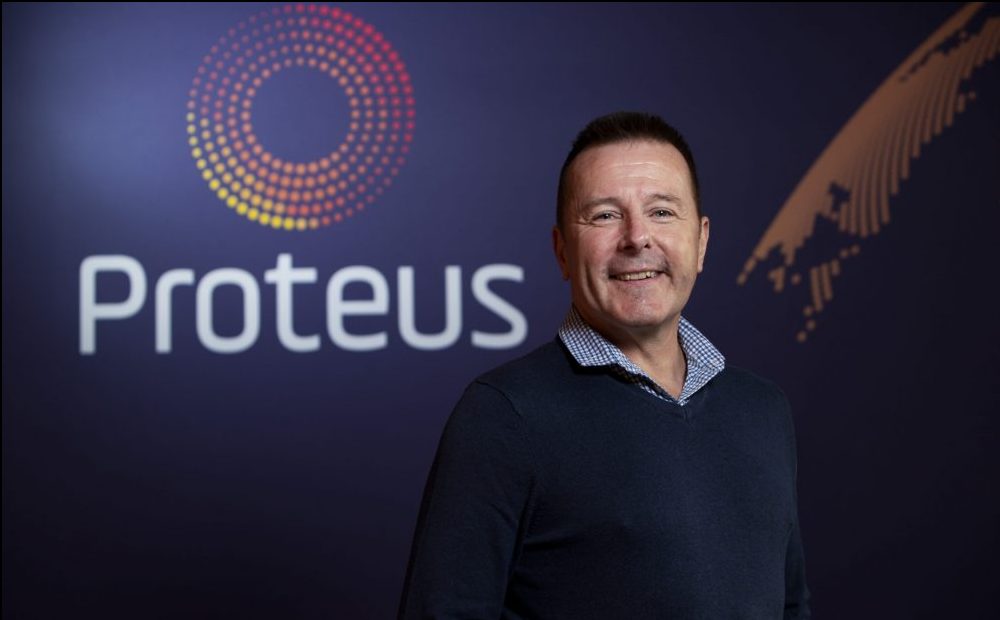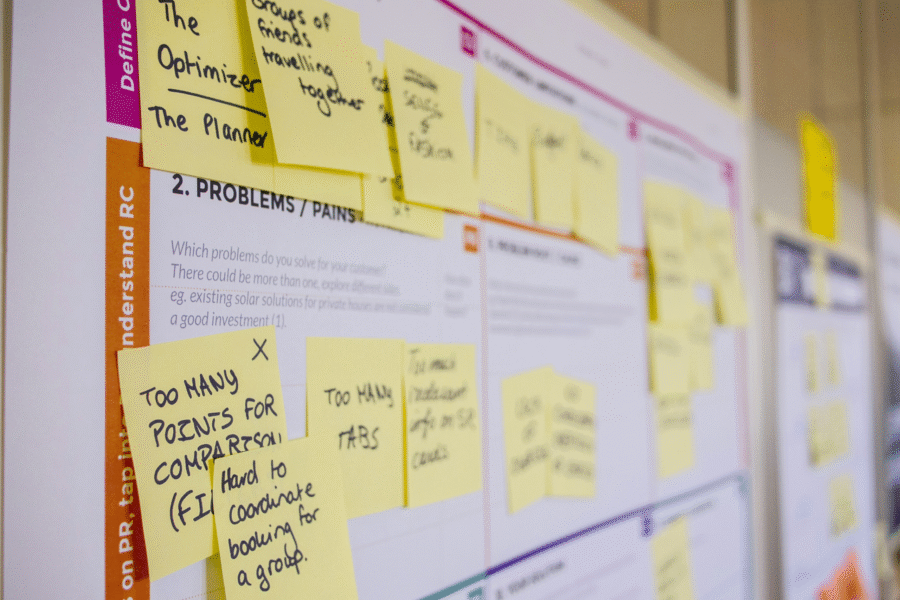Energy entrepreneur and Proteus founder Colin Manson has been a keen sports fan all his life. Chasing after footballs throughout school and university, the Xergy Group CEO has even made some of his career decisions based on which team the job would enable him to play for.
As an entrepreneur, with two successful businesses under his belt, he credits sport and sportsmanship as a major factor in his leadership and drive. After all, a strong work ethic, perseverance, dogged determination and being a team player are some of the most fundamental values in successful companies.
Right from school, up to senior football, I was captain of every team I ever played for.
Dynamic Decisions
Sports analysts increasingly provide evidence that the essence of modern football is speed. Players run more, the ball is circulating quicker, and decisions need to be made more rapidly than ever before. In fact, with players often in possession of the ball for an average of less than one second per contact, decision-making is one of the most crucial tactics in football.
Snap, life-defining decision-making has followed Colin throughout his life. It was this mentality that saw him turn down his first job offer with BT and instead opt to study chemical engineering at Heriot Watt University. It’s a quick-fire habit that has continued with him throughout his career.
He explained: “Over the years, I’ve learnt that the ability to make quick decisions is a very entrepreneurial trait. I know several people, especially in Aberdeen where there is a lot of opportunity, who share my ability to make quick decisions. Decisions that most people would shy away from!
“The real secret is appearing like you’ve made these decisions instantaneously, when in fact, you’ve processed and analysed it somewhere in your brain. You’ve worked out the angles and figured out all the routes. But whereas other people need to write it down in plans and spreadsheets and documents, it seems to happen overnight for me, making these quick decisions that ultimately have led to my successes.”
Teamwork
As a long-time fan of team sport, Colin recognises how it’s the combined efforts of a team that brings out an organisation’s key strengths and weaknesses. It’s the teammates and colleagues you surround yourself with that will, in turn, dictate how not only you develop, but how your business eventually crosses the finish line.
Notably, Colin first recognised the power of a great team when working at Enterprise Oil in the mid-1990s.
“If you look at the number of companies and entrepreneurs that sprung from that environment, it’s incredible. Around 10 or 20 small companies came out of there and I’ve often wondered if it was the culture there that did it, or if Enterprise Oil recruited a very specific type of person; someone that just wants to ‘go and get it’.”
And go get it he did when, after eight years at Genesis Oil and Gas Consultants, where Colin crafted his management skills and made a mark in the sector, he and several colleagues decided to set up their own business after an attempted management buyout.
Pushing boundaries
Xodus was launched with everything that Colin had wanted in a team and a company. Not only that, but just as he had with every sports team and work department before it, Colin was, once again, ‘the captain’.
“When we set up Xodus, we broke the rules. We had four equal shareholders and decided that we would not appoint a managing director. But very quickly, I took the lead. Everyone started to look at me to run the place and it evolved into a position. After some time, the other directors formalised it and I was appointed as Xodus’ managing director.”
Just like in sport, business is all about strategy and sound tactics when pushing ahead against the competition. It’s about setting goals and learning from losing. Colin, for the first time in his career, was able to submerge himself in the corporate world. Learning the language and dealing with strategy development, budgeting and marketing. But above all, he wanted to build a great to place to work.
“Yes, we wanted to make money, we wanted to be successful, but deep down, we just wanted to be a great place to work. And I think we achieved that. It was an incredible period of excitement and growth.”
Not only did Colin succeed in driving this culture forward, but he also successfully grew Xodus to a $150M turnover business, with 14 offices operating in five continents.
Passion for the game
Great sportspeople dedicate their life to the sport they are passionate about. Training at every opportunity and looking to develop new tactics and skills at every hurdle. Great entrepreneurs are the same.
Having stepped down as CEO from Xodus in 2015, Colin then took the time to spend time with his family. But before long, the passion he had for growing a business was re-ignited.
“I needed to do something. I wasn’t bored, but at 51, I knew I wasn’t done yet. So, I started to think up a few ideas. This is key for entrepreneurs, being able to fire up five or six ideas at a time and working them all up simultaneously, never knowing which or when they will land.”
One of these ideas, eventually landed on a new tech firm, Xergy and its product, Proteus. Designed to iron out the inefficiencies in operating systems across the consultancy sector experienced by Colin and many of his former colleagues.
Galvanised by his partnership with chairman, James McCallum, Colin threw himself into the initial start-up frenzy; from articulating the challenge the technology was to solve, setting the values and ethos of the company to designing logos and creating taglines, everything that Colin loves about building a business.
“I’ve really relished this. I like coming up with solutions – I love the creativity and the product development. And I think all my life, I’ve wanted to do this,” he explained.
“It’s unbelievably rewarding to see an idea in your brain come to life, first on a piece of paper and then to a tangible product that you can market and sell.”
Launched in 2020 at the height of the global lockdown, Proteus was designed to transform the way businesses operate. Split into two core modules, the sales module and the delivery module, Proteus integrates seamlessly with existing systems to help companies win more work and deliver projects more efficiently. Backed by over £10 million in private investment, Proteus is now used worldwide to streamline operations and drive better project outcomes.
Once again, Colin, now in the role of CEO to a burgeoning tech company, is captain of another hugely successful venture. But what does it take to make it as a successful entrepreneur?
It’s a bit like playing football. You either have the talent or you don’t. That talent then needs to be nurtured and developed but you need to have that to begin with. It’s the same with entrepreneurship. You can learn how to run a business, but being an entrepreneur, has to be in your make-up.
About Proteus
Proteus developed by a Scottish-based tech company, Xergy Group, is an end-to-end project management solution developed for the energy and engineering consulting industries.
Proteus is industry-proven and enables consultancies to meet project demands across the full lifecycle, from proposal development to project delivery. With robust sales and project delivery modules, Proteus helps its customers win more business, increase efficiencies, manage expenditures, and improve project controls.
Critical workflows, automation, and controls are integrated into Proteus. These include opportunity evaluation, proposal building, resource planning, budget tracking and forecasting, real-time multi-level restricted dashboards, and project performance analytics.
Third-party integrations and customised solutions allow Proteus’ users, which include C-suite, project leads, and engineers, to get the exact software solution needed for their business.
We offer a free onboarding consultation service to ensure your company account is set up to your company’s needs.
How to get Proteus
Proteus operates under a software-as-a-service (SaaS) model. We offer Enterprise packages and flexible pricing solutions: contact our team to learn more requests@xergy.com
We designed Proteus to be simple, and that means you can get up and running on Proteus without an IT team or support from a programmer. You will want to spend a bit of time configuring the admin console so that you have everything set up to suit your company structure, but it is intuitive and you don’t need a PhD in IT.
However, we want you to get the best out of what is a brilliantly powerful tool, so don’t hesitate to ask for our support. We have a team of product experts who are ready to help you with the configuration process, so get in touch today by filling out the form below:



